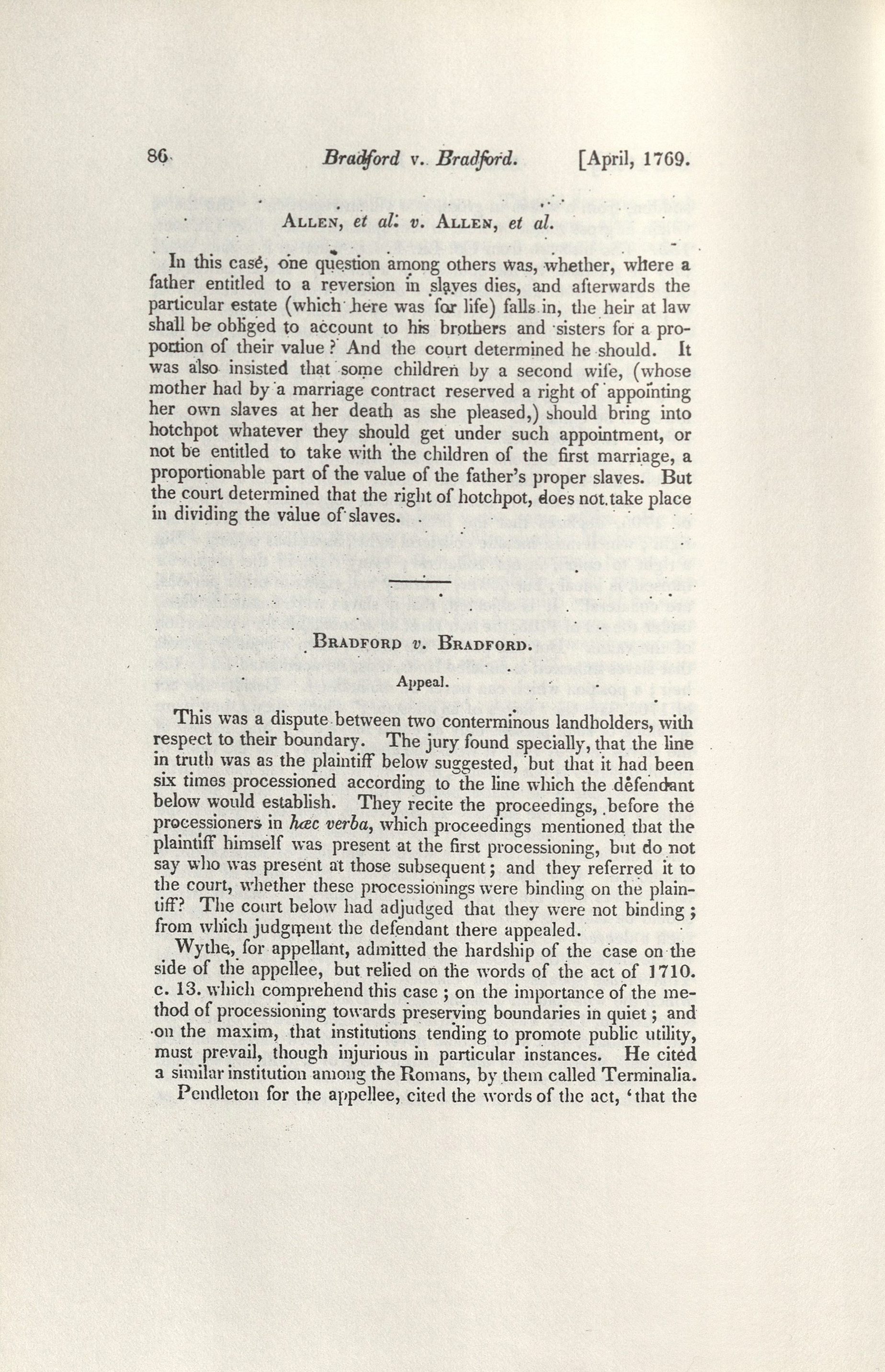Bradford v. Bradford

Bradford v. Bradford, Jefferson 86 (1769),[1] was a boundary dispute between neighboring property owners. This case was an appeal from a jury decision where the jury agreed that the line was where the plaintiff said it was and that the assessments that stated otherwise did not bind the plaintiff. The case turns on whether the plaintiff needed to be present at the assessments for them to be binding.
Background
George Wythe, represented the appellant (the defendant in the original case), arguing that based on the statute (Act of 1710, c.13) and the purpose for the required assessments, the plaintiff should be bound by the assessments. Essentially, he makes the argument that because there were multiple assessments one can infer that those assessments created an expectation of where the boundary line existed.
Edmund Pendleton, for the appellee (the plaintiff in the original case), argued that the plaintiff won on a technicality because the act states that the accessors should report who attended the assessment and it was unclear if the plaintiff attended beyond the first assessment or if they even had notice. He also argued that any ambiguity in the act should be read in favor of the plaintiff.
Wythe rebutted that the act does not require the parties’ presence, it only required notice. If the church wardens published notice of the assessment at the church, then it does not matter whether the plaintiff attended the assessment and the court should assume notice.[2]
The Court's Decision
The court sides with Pendleton and affirmed the original judgment.
See also
References
- ↑ Thomas Jefferson, Reports of cases determined in the General Court of Virginia, from 1730 to 1740 and from 1768 to 1772, ed. Thomas Jefferson Randolph. (Charlottesville: F Carr and Co., 1829; Buffalo, N.Y. : W.S. Hein, 1981): 86.
- ↑ Ibid. Wythe also cited the "maxim" that "institutions tending to promote public utility, must prevail, though injurious in particular instances." He also made reference to Terminalia, the festival celebrating Terminus, the Roman god of boundaries. (Britannica, T. Editors of Encyclopaedia. "Terminus." Encyclopedia Britannica, accessed August 9, 2023. https://www.britannica.com/topic/Terminus.)